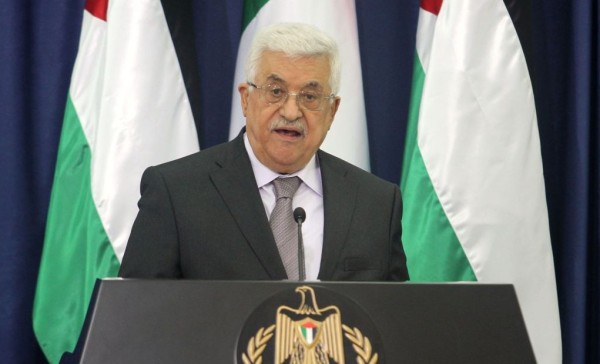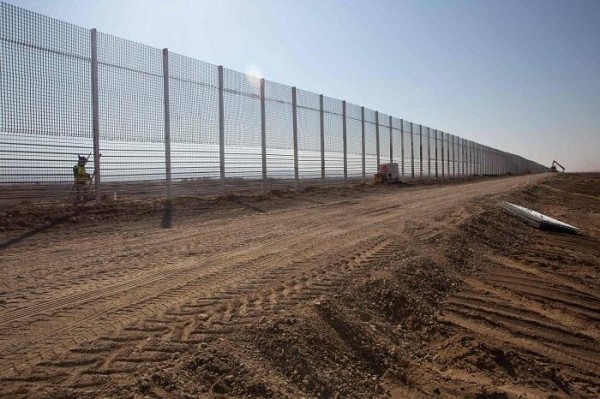As the prospect for peace between Israel and the Palestinians fades further away, Prime Minister Benjamin Netanyahu proffers yet more reasons why Palestinian statehood is not a feasible proposition.
From my perspective, his arguments fall flat, sounding more like facile, self-serving rationalizations than rational explanations.
Under pressure from the United States, Netanyahu supposedly endorsed a two-state solution in 2009. In a speech at Bar-Ilan University, he embraced the concept of two states for two people, knowing full well it ran counter to Likud Party doctrine and policy.

In a remarkable admission some years later, Netanyahu admitted that political stagnation could well transform Israel into a binational state, which may yet be Israel’s fate should it remain in the West Bank and continue expanding its web of settlements.
Apparently acting on this fear, Netanyahu consistently urged Mahmoud Abbas — the president of the Palestinian Authority and Israel’s natural negotiating partner — to return to peace talks, which collapsed in a welter of mutual acrimony in the spring of 2014 following nine months of fruitless negotiations.
For almost the past year, however, Netanyahu has accentuated the negative, ruling out the possibility of a Palestinian state on the grounds that it would fall under the influence of Palestinian radicals and thus pose an existential threat to Israel’s existence.
More lately, he has raised yet more objections to Palestinian statehood.
On February 10, during a debate in a Knesset, he reiterated his pro-forma endorsement of a two-state solution. But he made it conditional on the Palestinian Authority recognizing Israel as a Jewish state and agreeing to a demilitarized Palestinian state.
These are not unreasonable demands, but some observers suspect that Netanyahu placed them on the agenda to sabotage a two-state solution. Lest it be forgotten, the Palestine Liberation Organization — the umbrella organization of the Palestinian Authority — officially recognized Israel in 1993, just as the Olso peace process got under way.
The Palestinian leadership will have to recognize Israel’s Jewish character and resign itself to demilitarization should both sides ever manage to resolve their key differences. But until then, I would argue, Abbas is under no obligation to accede to Netanyahu’s demands. Recognition of Israel as a Jewish state is a concession Abbas should save for last, when both parties are truly on the cusp of signing a just and binding peace treaty that can be guaranteed by the major powers.

In his Knesset remarks, Netanyahu also observed that Israel cannot afford to take risks in light of the instability that has plagued the Arab world since the failed popular rebellions in Egypt, Syria, Libya and Yemen. “My responsibility as prime minister is not to dig my head in the sand,” he said, explaining his reluctance to accept Palestinian statehood at this particular juncture. “In the face of the incredible changes around us (and) in the current circumstances, we can’t implement two states for two nations.”
It’s perfectly true that perilous times have descended on the Middle East, but if Israel hews to the status quo in the West Bank, its volatile conflict with the Palestinians will continue to fester, fostering instability and bloodshed.
The violence in the West Bank and Israel — which has claimed the lives of 28 Israelis and 163 Palestinians since last October — has begun to abate, notwithstanding the fatal stabbing of Tuvia Weissman, an off-duty soldier, on February 18 in a West Bank supermarket.
Netanyahu and company should not be under the illusion that Israel can keep an indefinite lid on the violence. As King Abdullah of Jordan and United Nation’s secretary-general, Ban ki-Moon, have correctly noted, Israel’s occupation of the West Bank feeds Palestinian frustration, anger, rage and Islamic radicalism. It’s illusory to assume the Palestinians will be silenced by intimidation and repression, or by promises of more jobs in Israel.
Netanyahu, in his willful blindness, claims that “terror is not the result of occupation.” But he’s spectacularly wrong. There are indeed Palestinians who reject Israel’s existence unequivocally and will stop at nothing to destroy it. But surveys suggest that most Palestinians in the West Bank would be prepared to coexist with Israel should a two-state solution be achieved. That’s something that Netanyahu prefers to ignore, at his and Israel’s peril.
He appears to believe he can insulate Israel from regional turmoil simply by building security fences around it. On February 9, during a tour of Israel’s fortified border with Jordan, he declared, “We will surround the entire state of Israel with a fence.” And in a reference to jihadist movements like Islamic State, he said, “In our neighborhood, we need to protect ourselves from the carnivorous animals.”

It goes without saying that Israel has a duty to protect itself from its enemies. But Netanyahu’s interest in fence building, a variation of poet Robert Frost’s credo that “good fences make good neighbors,” is basically a function of his siege mentality and his assumption that Israel must strictly live by the sword.
Netanyahu’s philosophy is reminiscent of Zionist Revisionist leader Vladimir Jabotinsky’s grim “iron wall” conception of Zionism, of which he’s a faithful follower.
But as Israeli opposition leader Isaac Herzog has warned, security barriers will not ultimately keep Israel safe. “We may surround ourselves with fences, but the Palestinians will remain among us,” he wisely pointed out.
Israel, under Netanyahu’s short-sighted leadership, is drifting toward a binational solution, which would spell finis to its status as a democratic Jewish state.
But it may not be too late for Israel to correct the error of its ways.
France has presented Israel with a comprehensive plan to advance a two-state solution. Israel should, at the very least, give it serious consideration. Netanyahu has summarily rejected it out of hand, claiming it would predetermine the outcome of negotiations.
Netanyahu’s policies in the West Bank, in fact, are shaping the future, dooming Israel to regional and international isolation and perpetual strife with its Palestinian and Arab neighbors.
It would appear that Netanyahu regards conflict management more important than conflict resolution. He is mistaken. Israel urgently needs to adopt a pragmatic and productive approach to resolving its dispute with the Palestinians.
